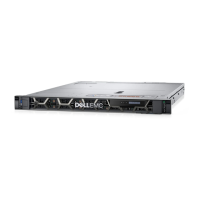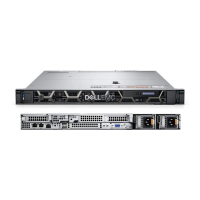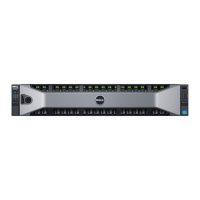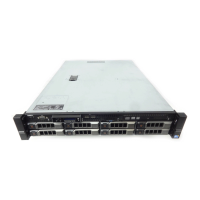Dell
25
PowerEdge R415 Technical Guide
Half sine shock in all operational orientations of 31G +/- 5% with
a pulse duration of 2.6ms +/-10%
Half sine shock on all six sides of 71G +/- 5% with a pulse
duration of 2ms +/-10%
Square wave shock on all six sides of 27G with velocity change @
235 in/sec or greater
-16 to 3048m (-50 to 10,000ft)
Note: For altitudes above 2950 feet, the maximum operating
temperature is derated 1°F/550ft.
-16 to 10,600m (-50 to 35,000ft)
The airborne contaminant level is class G2 or lower as defined by ISA-S71.04-1985.
4.5 ENERGY STAR
®
Compliance
ENERGY STAR qualified configurations can be accessed from the ENERGY STAR Compliance results landing
page on Dell.com.
4.6 Thermal
The thermal design of the PowerEdge R415 includes the following:
Closed loop thermal control algorithm: This method uses feedback temperatures to dynamically
determine proper fan speeds.
Comprehensive thermal management: The PowerEdge R415 controls system cooling fan speed based
on several different responses from critical component sensors, such as processor temperature, DIMM
temperature, inlet ambient temperature, and system configurations. The thermal management
adjusts proper cooling ability for the system according to what the system really needs.
Optimized Ventilation: The R415 chassis has a custom ventilation design for optimized air flow path.
Each component and peripheral is ensured sufficient air for cooling.
Power-to-Cool: Dell continues to improve the designs and cooling efficiency for server products.
4.7 Acoustics
The acoustical design of the PowerEdge R415 reflects adherence to Dell’s high sound-quality standards.
Sound quality is different from sound power level and sound pressure level in that it describes how humans
respond to annoyances in sound, like whistles, hums, etc. One of the sound quality metrics in the Dell
specification is prominence ratio of a tone as shown in Table 7.
Fan speeds and noise levels ramp up during the boot process to add a layer of protection for component
cooling if the system were not to boot properly. Hardware configurations affect system noise levels. The
table below shows the noise levels of the R415 with different configurations.
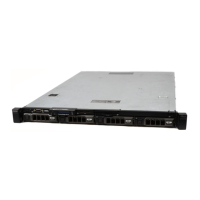
